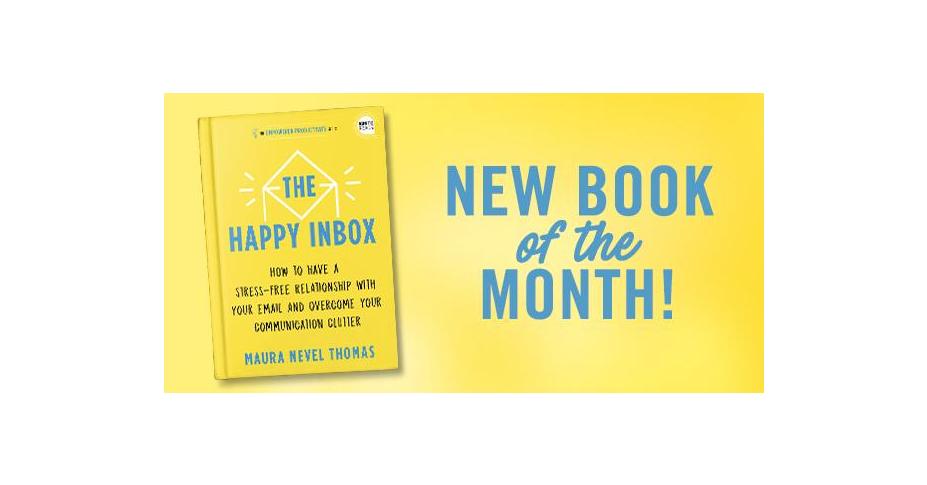In last week’s post, I shared some new research regarding the problems of after-hours email, and also offered some solutions. Today I wanted to share a short (5-minute) excerpt of a corporate training I recently delivered that offers additional solutions. To be clear, this is a corporate culture problem more than a personal productivity problem. If you are interested in training for your leadership team on how to create a corporate culture with intention, and an environment where your team can deliver their best for your organization every day, get in touch to discuss that with me here.
The transcript of this video follows. For more, also check out my class on the same topic on SkillShare.
[Begin video transcript: After Hours Email Solutions]
New study from Virginia Tech on After Hours Emails shows adverse effects for workers and their families.
Maura Thomas offers solutions. Five minute training excerpt follows.
So that’s emails and communications during work hours. What about after hours? Do you ever find yourself emailing people who report to you in the wee hours of the morning or on Saturday or late at night or whatever? If you’re emailing people who report to you during their off hours, during downtime, non-business hours, then they’re probably going to be checking those messages. Out of two reasons: One is lack of attention management. They don’t actually need to be working. But because we can’t single task anymore, they’re sitting on their couch with their family and everybody is watching TV, but they have their phone in their hand, and they’re just idly tapping icons. Before they know it, they’ve hit that email and “Oh, look there’s a message from you.”
And “I better get on this because I think she needs my help,” and before you know, it they’ve spent from 10pm to midnight working. They didn’t mean to.
The other reason is ambition. “My boss is working late at night so I want my boss to know that I’m dedicated and I’m a team player and if they need me at night then I’ll be here at night.” So, “if you’re working then I’m working, boss.”
So it’s probably a better idea to schedule your send because Outlook lets you do that. If you’re working because you have flex time…because you came in late because you went to your kid’s school play and now you’re working until nine o’clock at night just to make up for that, that’s fine. But don’t put your work schedule on other people. Schedule the send so that it comes in during work hours, so that people understand that downtime is important. And especially for knowledge workers, downtime is even more important.
Again, you can’t get a fresh perspective on something that you never step away from. So you need downtime to bring your A-game and long work hours…it’s detrimental to the individual. It leads to stress and high blood pressure and illness and alcoholism and insomnia and all kinds of things. It also costs the company money in terms of burnout and sick days and higher health care costs and all those kinds of things. So here’s the truth. I love to say this: Sometimes the best thing that you can do for your work is not work.
When we have time away, we come back refreshed and focused and motivated and inspired…and we need it. When you think about, “should I work more,” or “how much am I giving,” I hope that after today you start to evaluate that. How much do I work? Am I out of balance? But here’s the question that I always ask people and they say, oh my job demands it. And I know that you guys in some departments are short staffed and I know that a lot is being asked of you, but YOU are in charge of your burnout. Nobody else can do it for you.
And so the question to ask as you evaluate this is, “At what cost?” If I work more, at what cost? What am I giving up? Am I giving up date night? Am I giving up time with my friends? Am I giving up recreation? Am I giving up exercise? There’s always an opportunity cost when you choose to work more, there’s always an opportunity cost and so you need to … It’s a great question to ask yourself: At what cost? And I know people who love their jobs. Who love, love, love their jobs. They get inspired by their work. They get motivated by their work. They feel like work adds meaning to their life.
But even if you love your job, which I’m sure you all do, it’s still is bad for your job to work all the time, to work too much or to not take appropriate breaks. And I know that you have an open vacation policy. So that’s a great benefit. And you can plan it, right? You know when you’re leading up to a project rollout, to a product rollout or a conference and you have to be prepared or whatever. And so you can look ahead at your year and say, “Okay, well we’re going to rollout a project in the spring and we’re going to do this and we’re going to do that. So this is a good time to take a week off, and this is a good time to take a week off.” And make your plans. Buy your plane tickets. Downtime is important.
Learn more in the book by Maura Nevel Thomas, Work Without Walls, An Executive’s Guide to Attention Management, Productivity, and the Future of Work.
Maura’s body of work for Harvard Business Review on productivity and attention management can be found at maurathomas.com/hbr.
Learn more about productivity training, attention management training, and time management training for your staff or leadership team at maurathomas.com/training.
- Maura Nevel Thomas, author of The Happy Inbox

